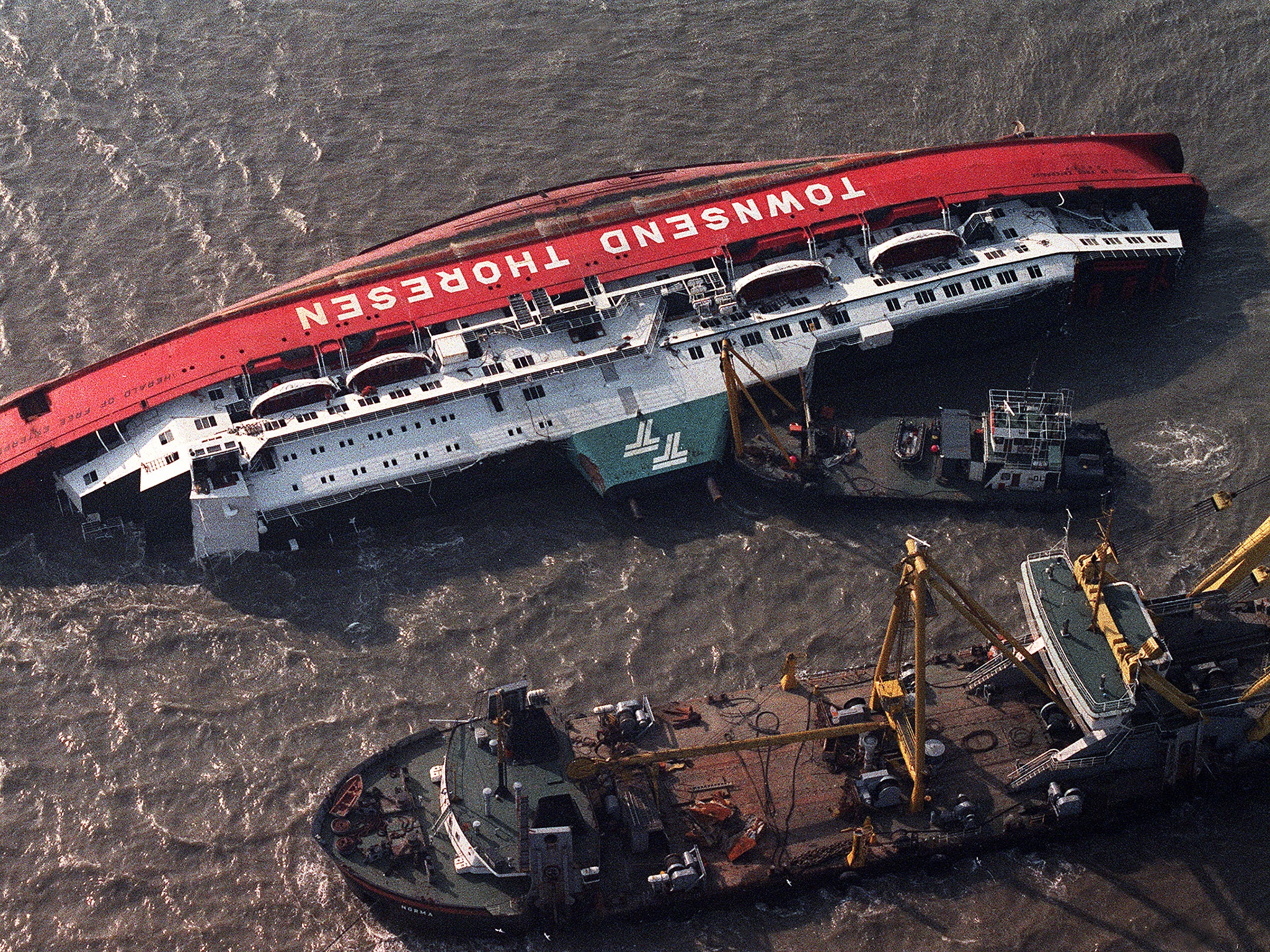On the 30th anniversary of Zeebrugge, we should not forget the hard lessons learnt
It remains vital that the rest of us do not forget the scale of the disaster, not simply out of respect for those directly affected but because it is one of the clearest examples of what can happen when a culture of carelessness infects an entire organisation

There are some place names which will be forever associated with disaster. Hillsborough, Lockerbie and Heysel are all much more than locations on a map. Likewise, mention the Belgian port of Zeebrugge to anybody in the UK aged over 35 and a grim shudder is likely to pass through them.
On Monday it will be the 30th anniversary of Britain’s worst maritime disaster in living memory, outside wartime. In the frigid seas just a couple of miles from the continental coast 193 women, men and children lost their lives as the Herald of Free Enterprise took on hundreds of gallons of water and swiftly capsized. The ferry had departed from Belgium at just after six o’clock in the evening but a series of human errors meant that it had got underway without its bow loading doors being closed. As the ship picked up speed, the rolling waves washed though the lower car decks, compromising the Herald’s stability within minutes. It turned on to its side as all lighting cut out, coming to rest, partially submerged, on a sandbar. Those who did not drown or die from injuries sustained by falling were swiftly at risk from hypothermia.
The scale of the human tragedy is obvious enough. Many families lost multiple members. The 350 or so people who survived were deeply traumatised. Children experienced years of night terrors. Many adults were left shattered, either by grief, injury or the memory of what they had seen. Careers were lost, relationships destroyed. Tales abound of survivors who for years would not step on to a boat or go swimming.
Yet what is almost as striking about the Zeebrugge disaster is the degree to which it showed up the rank corporate complacency which existed in the ferry industry – and almost certainly beyond it. At the Public Court of Inquiry, Lord Justice Sir Barry Sheen concluded that there was a “disease of sloppiness” at every level of Townsend Thoresen, the Herald’s operator. Yet P&O, which ultimately owned Townsend Thoresen, seemed more intent on salvaging its reputation than taking proper care of survivors. Many waited years for compensation and often received paltry awards. The Townsend Thoresen brand was scrubbed from history, the jaunty red hulls of its ships painted over in P&O blue.
Meanwhile, criminal charges of negligence were brought against several crew members and a charge of corporate manslaughter was brought against P&O European Ferries (Dover) Ltd; but the cases collapsed. This at least set a precedent: it was the first occasion that the courts had agreed that such a charge against a corporation was feasible. Even so, successful prosecutions of bodies corporate have remained few and far between and the suspicion remains that big companies find it too easy to wriggle away from criminal responsibility.
Certainly the safety record of British ferries in the last three decades has been strong. That in part is a consequence of lessons learned from the tragedy of 6 March 1987. (The same cannot be said for other parts of the world.) Moreover, the disaster shone a light on the need to protect whistleblowers, since it became patently clear during the subsequent investigations that employees had been fearful of suffering personal consequences if they raised concerns about health and safety failings. The Public Interest Disclosure Act 1998 offered legislative safeguards 10 years later – although it remains open to the criticism that its complexity and relative lack of ambition has meant workers still have inadequate levels of protection.
The passage of time can ease grief and can lessen pain. But those on board the Herald of Free Enterprise that cold night three decades ago will never forget the horrors of its sinking; many will never recover from their experience and their loss. It remains vital that the rest of us do not forget the scale of the disaster either, not simply out of respect for those directly affected but because it is one of the clearest examples of what can happen when a culture of carelessness infects an entire organisation.
Townsend Thoresen may, like the Herald, be no more. But it should for all time be held up as an exemplar of corporate rottenness – a reminder to every would-be business operator that enterprise cannot exist in isolation from responsibility.
Join our commenting forum
Join thought-provoking conversations, follow other Independent readers and see their replies
Comments
Bookmark popover
Removed from bookmarks